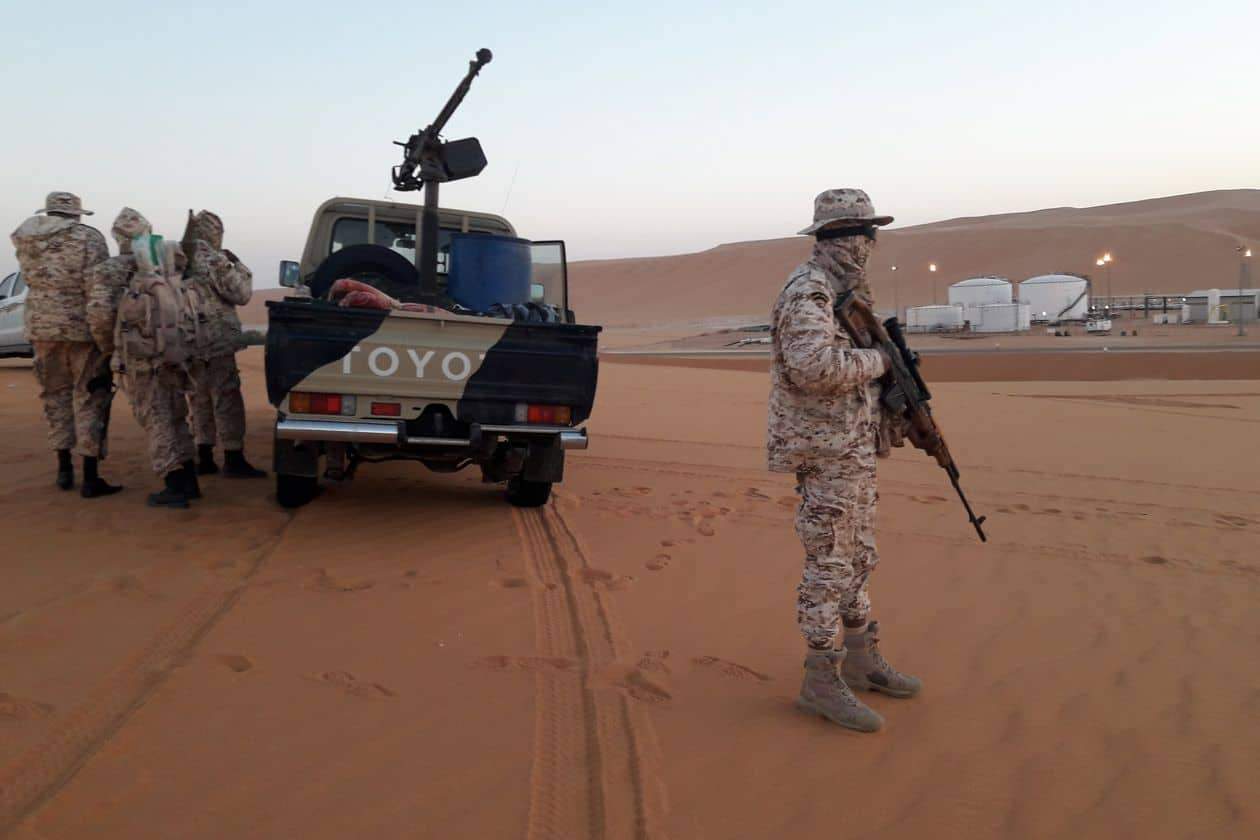Russian Fighters Help Tighten Rebel Control of Libya’s Largest Oil Field

Mercenaries connected to the Russian government have joined forces with a rebel militia to hold Libya’s largest oil field, European and Libyan officials said, prompting U.S. protests over foreign interference in the country’s most strategic industry.
A convoy of vehicles carrying Russian and Sudanese mercenaries moved into the 300,000-barrels-a-day Sharara field late Thursday and joined forces with a militia loyal to the eastern Libya-based rebel commander Khalifa Haftar, the officials said. The field is operated by Spain’s Repsol SA on behalf of Libya’s state-run National Oil Corp., with France’s Total SA, Norway’s Equinor AS A and Austria’s OMV AG owning minority stakes.
“Our workers are not allowed to resume production or resume maintenance work by the Libyan armed militias under the command of the Eastern authorities,” Libya’s NOC told The Wall Street Journal. “We do not need Russian and other foreign mercenaries in Libyan oil fields whose goal is to prevent oil production.”
Equinor referred comments to NOC and the other companies didn’t immediately respond to requests for comment.
The Sharara field has become a prized asset in the six-year-long civil war between Mr. Haftar’s forces and the official Libyan government. The oil field closed in January and briefly reopened earlier this month after forces that held the facility pledged loyalty to the central government in Tripoli, a move that undermined other producers’ efforts to rebalance oil markets at the time.
After production resumed for two days, the facility was shut down again when fighters loyal to Mr. Haftar took control of the field on June 8, the officials said. With the arrival this week of experienced Russian fighters, Mr. Haftar will now be able to consolidate his control and keep the field closed, depriving the internationally-recognized government of vital revenue, the officials said.
The Russian fighters, the officials said, are part of the Wagner Group—a network of mercenaries connected to the Russian Defense Ministry. In Libya, the group’s operations are overseen by Russia’s military intelligence branch, one of them said.
Russian Defense Ministry officials didn’t immediately respond to a request for comment. The ministry has always denied any connection with Wagner.
The U.S. Embassy in Libya on Friday criticized what it called “an unprecedented foreign-backed campaign to undermine Libya’s energy sector and prevent the resumption of oil production.”
“We share the NOC’s deep concern about the shameful interference of Wagner and other foreign mercenaries against NOC facilities and personnel at the al-Sharara oil field,” the Embassy said in a statement posted on its Facebook page.
NOC said the field was also occupied by Sudanese mercenaries called “Janjaweed,” who are loyal to the government in Khartoum.
“Many countries are themselves benefiting from the absence of Libyan oil from global markets,” said NOC Chairman Mustafa Sanalla, referring to recent efforts by the Organization of the Petroleum Exporting Countries and its allies including Russia to curb global oil supply and lift prices.
“Some of them cynically express their public regret for Libya’s continued inability to produce oil while all the time working in the background to support blockading forces,” Mr. Sanalla said.
The arrival of Kremlin-aligned mercenaries also means Russia may now hold sway on assets partly owned by major European oil companies, European security officials. “It’s a dangerous step. The optics are terrible,” one of them said.
Photo: Forces loyal to Libyan rebel leader commander Khalifa Haftar standing guard near the Sharara oil field in Obari, Libya, in February 2019. - PHOTO: STRINGER/REUTERS











